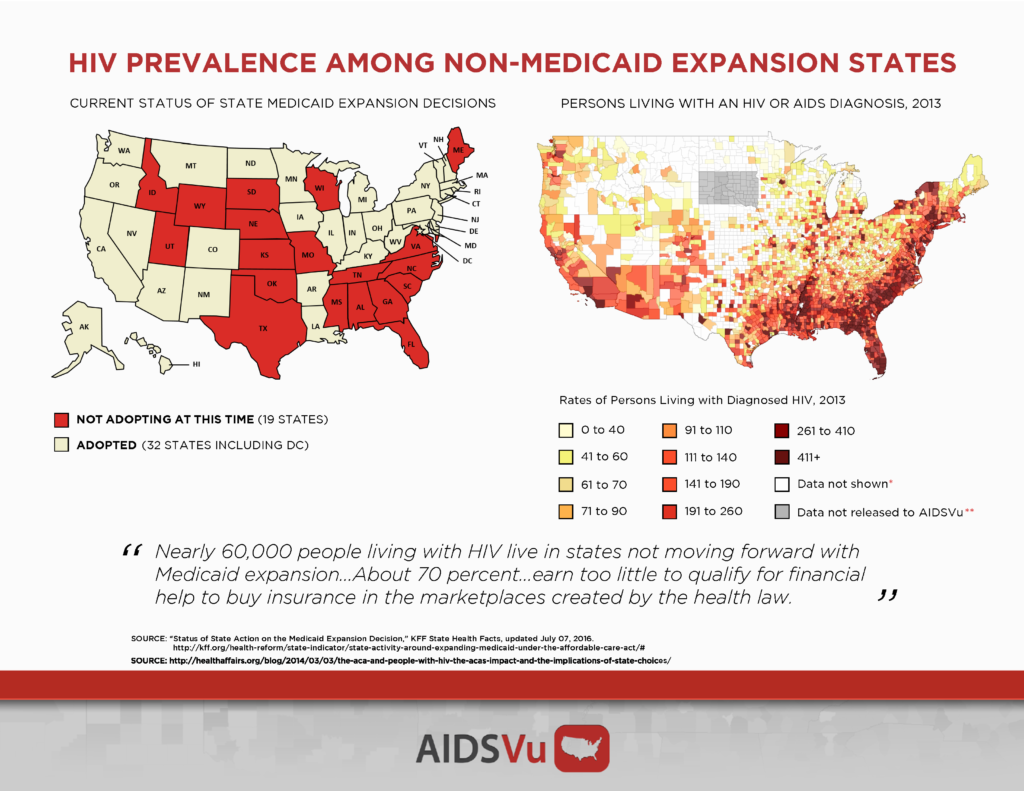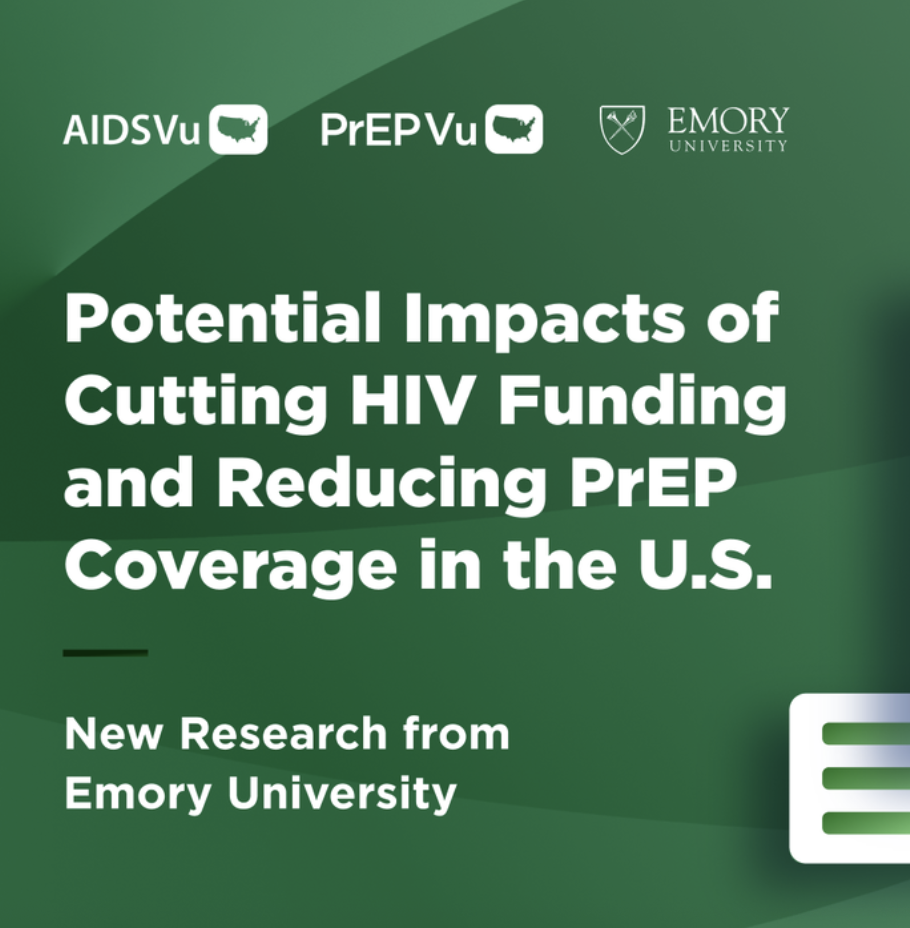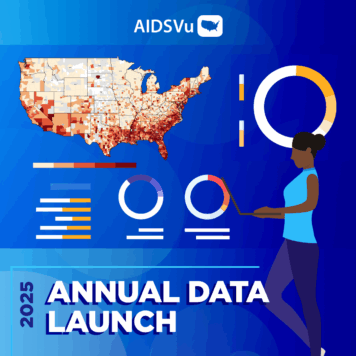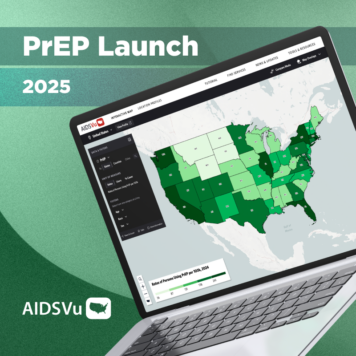By: Dr. Jennifer Kates, Vice President and Director of Global Health & HIV Policy at the Kaiser Family Foundation and AIDSVu Advisory Committee Member
Editor’s Note: Today we welcome AIDSVu Advisory Committee member and guest blogger Jennifer Kates, Vice President and Director of Global Health & HIV Policy at the Kaiser Family Foundation, to share how she utilizes AIDSVu data to analyze the impact of states’ Medicaid expansion decisions.
AIDSVu helps users understand HIV/AIDS by using data to illustrate the impact of the virus in the United States. The Medicaid map is the first in a series of policy-oriented maps and visualizations to help provide tools for resource allocation, prevention planning, and advocacy in a continued effort to end the HIV epidemic.
When it comes to HIV, treatment is prevention. The recent Strategic Timing of Antiretroviral Treatment (START) study published by The National Institutes of Health (NIH) found that early diagnosis, prompt linkage to care, and antiretroviral therapy were key to reducing morbidity, mortality, and transmission of HIV. Yet while an estimated 1.2 million people are living with HIV in the U.S., almost two-thirds are not yet in regular care, either because they have not yet been diagnosed or have not been retained in care.
People living with HIV typically have significant, high-cost health needs and often face barriers to receiving care. The Affordable Care Act took strides to reduce such barriers, and provided the opportunity for states to expand Medicaid eligibility to those with incomes below 138 percent of the federal poverty line. In a 2014 Health Affairs article which I coauthored with Rachel Garfield, we estimated that of the more than 400,000 adults (aged 19-64 years) with HIV who were receiving medical care, nearly 70,000 were uninsured, and a majority of them had incomes below 138 percent of the federal poverty line. If all states had expanded Medicaid, these individuals would have qualified for coverage allowing for continuity of care and access to the antiretroviral therapy they need.
AIDSVu, in partnership with the Kaiser Family Foundation, recently released a new resource that displays the states’ Medicaid expansion decisions alongside HIV prevalence. The new side-by-side maps show that as of July 20, 2015, 31 states have expanded their Medicaid programs, one is under consideration, and 19 have chosen not to expand. Many of the non-expansion states are also those in which HIV is the most concentrated, and one study estimated that nearly 60,000 people living with HIV reside in states not expanding Medicaid. While insurance coverage alone does not necessarily guarantee access, it is an important step in linking more people with HIV to regular care and treatment, which in turn helps to stop the spread of the HIV epidemic.





